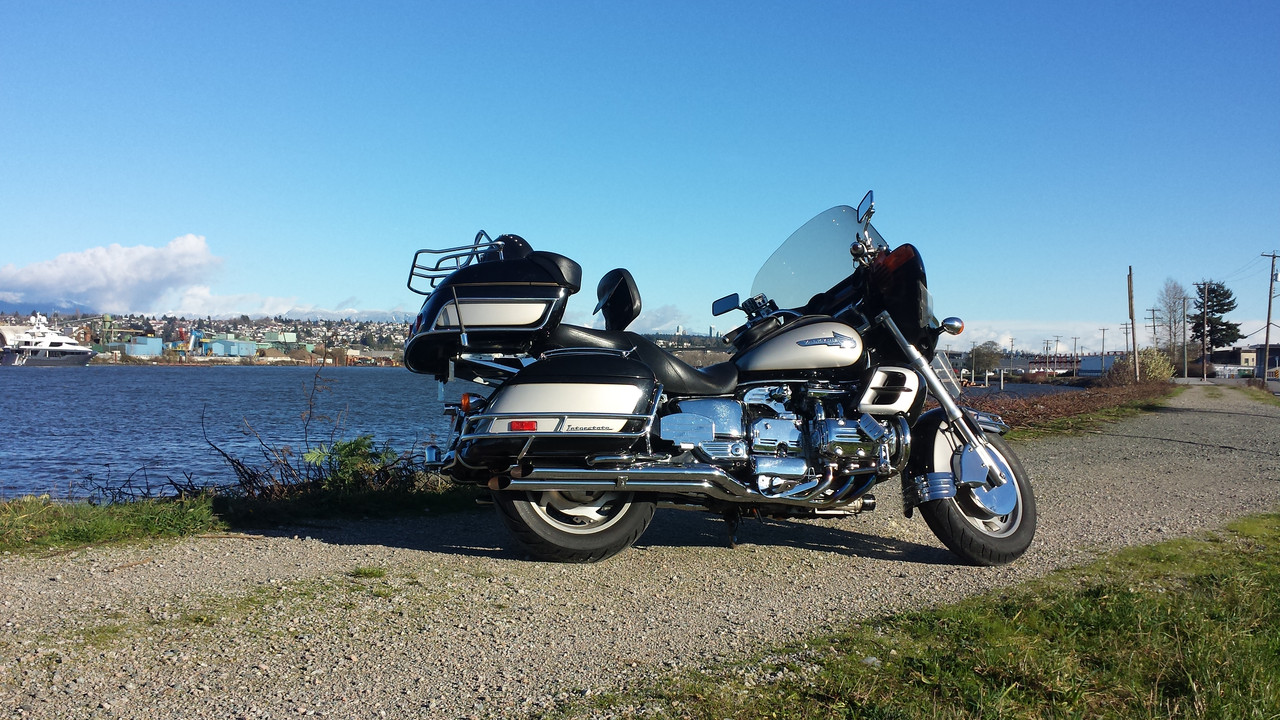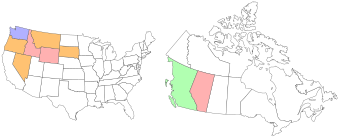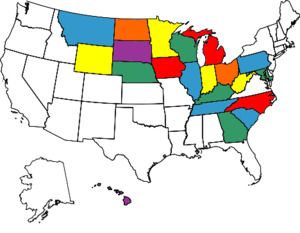|
Fathertime
|
 |
« on: December 01, 2010, 10:32:27 AM » |
|
The other day, after I put my Valk up for the winter (now its Valk related) I started working on my car, doing a front brake job. The rotors were bad, so I wanted to replace them. Got the calipers off and took the time to soak the caliper mounting bracket bolts up with penetrating oil (I used PB Blaster). Well, as the subject header suggests, I ended up rounding off the heads to the mounting bolts. One "expert" I talked to suggested heating them up with a torch and clamping them with a new set of vise-grips. Now, I'm no mechanical wizzard, but that seems a good way to break a bolt.
I remember seeing a special tool for just this condition. Working on the same idea of an EZ Out (left hand thread, increasing diameter tap type tool) that locks tighter on the fastener the more torque you apply. If I remember correctly, it kind of looks like a die but with left hands threads.
Any one out there ever use such a tool? Did it work or did you just end up busting your knuckles?
TIA
Father Time
|
|
|
|
|
 Logged
Logged
|
|
|
|
|
Ricky-D
|
 |
« Reply #1 on: December 01, 2010, 11:13:39 AM » |
|
Yeah, on big rusted-in bolts and nuts it's absolutely necessary to use six point sockets and wrenches.
Sears sells what you're asking about.
The reports are positive about the results of these specialty tools.
Using heat is a mixed bag on rusted items.
Some times it's a good idea to give those large rusted bolts a good smack with a hammer prior to trying loosening.
***
|
|
|
|
|
 Logged
Logged
|
2000_Valkyrie_Interstate
|
|
|
John Schmidt
Member
    
Posts: 15366
a/k/a Stuffy. '99 I/S Valk Roadsmith Trike
De Pere, WI (Green Bay)
|
 |
« Reply #2 on: December 01, 2010, 12:31:04 PM » |
|
Correct, Sears sells them, called bolt extractors and there are different size kits. My wife bought me a set for Christmas 2-3 yrs. ago after observing me struggling with a similar problem. Also, for screw extraction...forget easyouts. Get a set of straight flute extractors for that. Soon as you see them you'll understand, both have worked wonders for me in my shop.
|
|
|
|
|
 Logged
Logged
|
|
|
|
|
junior
|
 |
« Reply #3 on: December 01, 2010, 02:50:07 PM » |
|
and if its a chevy/gm you are gonna want to heat them bolts not to the point of glowing red hot, but hot to the touch(about 400 degs.) to break the locktight they put on them.
|
|
|
|
|
 Logged
Logged
|
|
|
|
|
Brad
|
 |
« Reply #4 on: December 01, 2010, 02:53:34 PM » |
|
That is some good advice for the future, NEVER use anything except 6 point sockets on tough bolts. Also check the torque specs, caliper slide bolts do not have to be very tight. The mounting bracket bolts have high specs but the slide bolts don't.
|
|
|
|
|
 Logged
Logged
|
|
|
|
gordonv
Member
    
Posts: 5766
VRCC # 31419
Richmond BC
|
 |
« Reply #5 on: December 01, 2010, 03:27:34 PM » |
|
The heating of the bolt is also a good call.
Over simplified is, that the bolt and thread (hole) expand with heat, and the bolt cools a little faster than the rest of the area, causing the bolt to be a smaller size in the thread, making it easier to remove.
Also this expansion causes any rusting/seazing to break loose, so even just heating and cooling can make the bolt easier to come out, like using the break free. Some people go as far as using a liquid freezing spary on the bolt to shrink it faster than the surrounding area. Most people have torches in there home, and don't need to go out and buy an expensive nitrogen sprayer.
|
|
|
|
|
 Logged
Logged
|
1999 Black with custom paint IS   |
|
|
fudgie
Member
    
Posts: 10651
Better to be judged by 12, then carried by 6.
Huntington Indiana

|
 |
« Reply #6 on: December 01, 2010, 04:32:12 PM » |
|
Are they bolt heads or allen heads? Heat'm up then put vice grips on real tight if the other tips dont help.
|
|
|
|
|
 Logged
Logged
|
 Now you're in the world of the wolves... And we welcome all you sheep... VRCC-#7196 VRCCDS-#0175 DTR PGR |
|
|
|
alph
|
 |
« Reply #7 on: December 01, 2010, 07:07:39 PM » |
|
Use a good penetrating oil, spray lube, liquid wrench. Let is soak for a while first, that'll help out tremendously. Over night may be required.
I’ve used a 1 part acetone, and 1 part transmission fluid mixture. Works the best, but it will ruin any painted surfaces. I have tried this mixture, it does work well!!
|
|
|
|
|
 Logged
Logged
|
Promote world peace, ban all religion. Ride Safe, Ride Often!!   |
|
|
|
Rocketman
|
 |
« Reply #8 on: December 02, 2010, 07:04:06 AM » |
|
Also, for screw extraction...forget easyouts. Get a set of straight flute extractors for that. Soon as you see them you'll understand, both have worked wonders for me in my shop.
Why do you prefer straight flutes? I've only used the spirals. The straight look like they wouldn't work as well, but never having used them, I'd like to hear your opinion. |
|
|
|
|
 Logged
Logged
|
|
|
|
|
Blackduck
|
 |
« Reply #9 on: December 02, 2010, 03:19:48 PM » |
|
Spiral type tends to expand the piece being removed wedging it tighter, more so if it is tight or thin walled.
If the straight type are like Rigid then the nut will also sit right up against the broken piece which helps reduce twist offs
A real rough move if you do not have Ezy-Outs is to use Allen keys. Drill a hole slightly smaller than the key you wish to use and drive the key into the hole.
Cheers Steve
|
|
|
|
|
 Logged
Logged
|
2001 Standard, 78 Goldwing, VRCC 21411
|
|
|
|
Rocketman
|
 |
« Reply #10 on: December 05, 2010, 08:45:14 PM » |
|
Interesting. Hadn't considered that, either the allen or the straight.
However, I'm not sure how you get any grip on the bolt without forcing it down in there. It seems to me that the only difference is that the force increases with torque with the spiral, whereas the straight requires you to apply the force prior to turning the extractor.
Reducing the possibility of twist-offs is an admirable goal, however.
(:
|
|
|
|
|
 Logged
Logged
|
|
|
|
|

